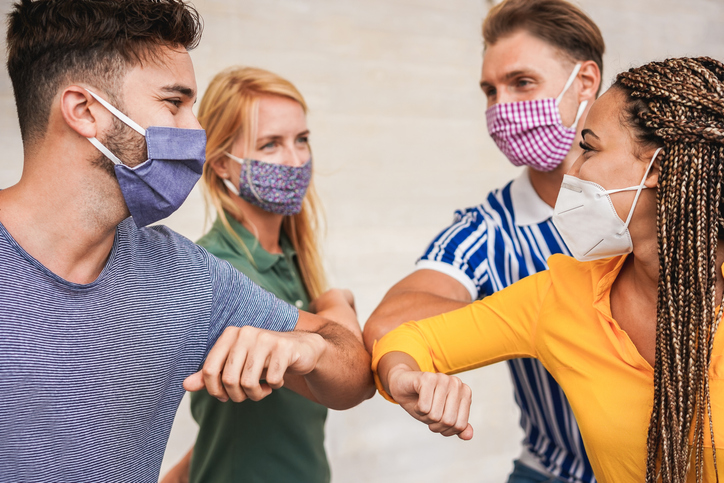It is hard to believe that it has been over a year since this whole pandemic started. I was going through our face masks and found some that I had bought when it first started. I commented to my husband that when I bought them, I thought we were only going to need them for a week or two. Well here we are, over a year later, and everyone in our house has a multitude of masks.
I don’t know how much longer this pandemic stuff will go on, but now there are vaccines and people are beginning to socialize more, which comes with its own set of issues. We are beginning to emerge from our isolation, and some, if not all of us, are feeling a little rusty on our social skills! Now it isn’t just normal social skills either, but we need to navigate masking etiquette and social distancing. It can feel like a lot to navigate in this already stressful time.
So, with all of that going on, let’s just do a little review for all of our sakes:
- Distance: Different cultures have different norms as far as how far away you stand from another person. It used to be that in the US, it was socially acceptable to be about an arm’s length away from someone. To some degree, this is a little different now. Now you are supposed to stay six feet apart, sometimes three. Figure out your comfort zone in this area and be respectful of what other people are comfortable with.
- Conflict: As we spend more time around others, we are going to experience more conflict. Some skills are especially helpful with conflict.
- Perspective taking — try to see things from the other person’s point of view. This also plays a big part in empathy.
- When you are in conflict, be specific and use your feelings. I often recommend starting with a statement such as “I feel (specific emotion) when/because (specific event).” You need to be specific. What we mean by that is choose a time that you felt this way, and only choose that time. If you tell me that you are upset that I never wash the dishes, it will automatically put me on the defensive. I will tell you when I last washed the dishes; I don’t want to be labeled the “never dish washer.” However, if you tell me that you feel frustrated because I didn’t wash the dishes last night, then we are going to have a different conversation. Use your emotion words.
- Engage:
- Ask open-ended questions. These are questions that require more than a “yes” or “no.” An example might be asking a child about school. A closed question might be something like, “Did you have a good day at school?” An open-ended question might be, “What was your favorite part of school today?”
- Answer questions with more than a one-word answer.
- Eye-contact: Work on maintaining eye contact. This can feel uncomfortable, and especially so if you have gotten out of practice! Make a goal of trying to meet someone’s eyes once, and then twice. You can practice this skill at home. Start with a small goal of meeting someone’s eyes for three seconds once in the conversation. Then go from there, making your goals a little longer and more frequent as you get comfortable. Eye contact is especially important as half of our faces are covered right now, so look at the top part of someone’s face to get clues as to how they are feeling.
- Listen: Active listening is a skill. When you are talking to someone, try to listen to what they are saying BEFORE you start thinking about how to respond. Reflect back to someone what you heard “I hear you saying … Did I get that right?”
I hope this little social skills boot camp was helpful for you. If you need more help navigating social skills during this time, you can do a quick google search, or talk with your therapist. We can always practice in session with you.

